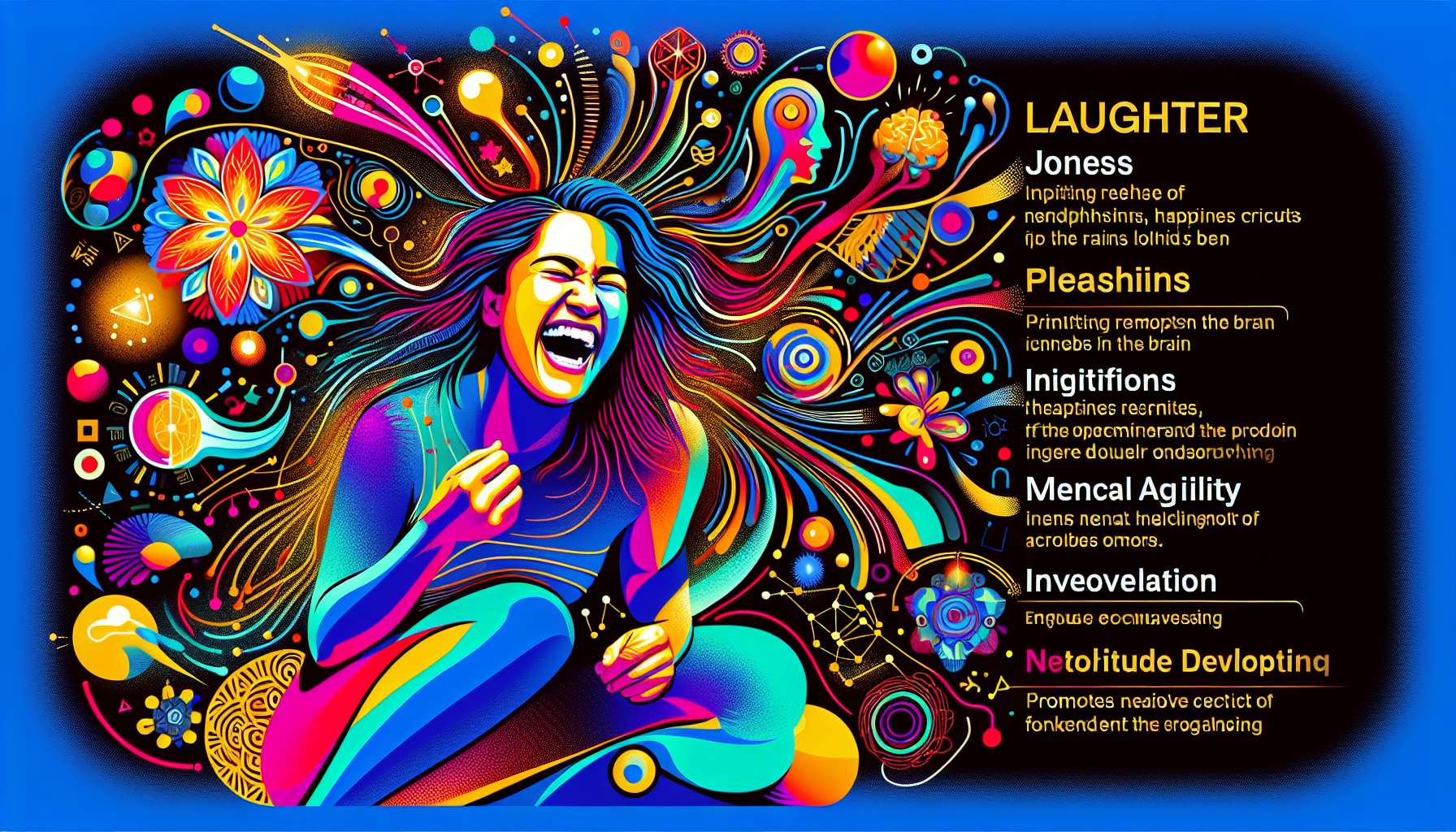
The connections between laughter, emotions, and cognition are close and complex, forming a dynamic system that profoundly influences our psychological functioning and well-being. Laughter is both an emotional expression, a trigger for positive emotions, and a potent cognitive stimulator.
At the emotional level, laughter is often considered the external manifestation of joy, amusement, and pleasure. It allows us to express and communicate these positive emotions universally, beyond linguistic and cultural barriers. Laughter strengthens and prolongs pleasant emotions, creating a positive feedback loop that amplifies the perceived well-being.
Laughing heartily with friends or while watching a comedy provides an immediate feeling of happiness and lightness that can linger well after the shared moment.
But laughter is not only a consequence of positive emotions, it is also a powerful trigger for these emotions. Studies have shown that simply laughing, even without an apparent reason, can induce a positive emotional state by stimulating the release of endorphins and activating the brain’s reward circuits. Voluntary or simulated laughter can thus be used as an emotional regulation tool, generating positive emotions and reducing stress and anxiety.
Regularly practicing laughter exercises, alone or in a group, can help cultivate a positive mood and strengthen emotional resilience when faced with daily challenges.
At the cognitive level, laughter is closely linked to the processes of perception, interpretation and decision-making. Recognizing and appreciating humor requires complex cognitive skills, such as the ability to detect incongruities, to understand puns and double meanings, to imagine absurd scenarios or to distance oneself from a situation. Laughter thus stimulates mental flexibility, creativity and problem solving by encouraging us to view things from new and different angles.
People with a good sense of humor are often perceived as more intelligent, more creative and more adaptable, because they show originality and vivacity of mind in their interpretation and reaction to situations.
Laughter also impacts attentional and memory processes. Humorous content captures attention more easily and is better remembered than neutral or serious information. The positive emotion associated with laughter acts as a marker of relevance that facilitates encoding and retrieval of memories. Using humor in learning or training contexts can thus promote engagement, motivation, and knowledge retention.
A trainer who punctuates his explanations with amusing anecdotes and witticisms creates a more relaxed atmosphere conducive to the assimilation of content, while making his message more memorable and impactful.
Finally, laughter helps to strengthen the links between emotions and cognition by promoting a more positive and optimistic evaluation of situations. When we laugh, we tend to perceive events in a more favorable light, to downplay difficulties and to feel more confident in our ability to cope with them. This cognitive reappraisal induced by laughter helps to reduce the negative emotional load and more efficiently mobilize resources to overcome obstacles.
Cultivating a humorous view of life, by learning to laugh at ourselves and tricky situations, can help strengthen resilience and maintain an emotional and cognitive balance in the face of life’s uncertainties.
For example, in high-pressure jobs like medical emergencies or law enforcement, dark humor and gallows jokes are often used as a defense mechanism to lighten the emotional load and maintain cognitive distance from potentially traumatic situations.
The connections between laughter, emotions, and cognition are multifaceted and synergistic, forming a complex system that influences our well-being and psychological functioning. Understanding and cultivating these positive interactions are at the heart of the practice of a Laughter Therapist, who seeks to harness the power of laughter to promote emotional fulfillment and stimulate everyone’s cognitive resources.
Key takeaways:
1. Laughter is closely linked to emotions and cognition, forming a dynamic system that influences our psychological well-being.
2. Laughter is both an expression of positive emotions and a trigger for these emotions, creating a positive feedback loop.
3. Laughing, even without an apparent reason, can induce a positive emotional state by stimulating the release of endorphins and activating the brain’s reward circuits.
4. Laughter stimulates mental flexibility, creativity, and problem-solving by encouraging us to view things from new angles.
5. Humor more readily captures attention and boosts memory retention of information, which can be useful in learning or training contexts.
6. Laughter helps to strengthen the links between emotions and cognition by promoting a more positive and optimistic evaluation of situations.
7. Cultivating a humorous view of life can help strengthen resilience and maintain emotional and cognitive balance in the face of challenges.
8. The positive interactions between laughter, emotions, and cognition are at the heart of the practice of a Laughter Therapist, who seeks to harness the power of laughter to promote emotional fulfillment and stimulate cognitive resources.
👉 To download docx (Editable) file click here : Click here
👉 To download PDF file click here : Click here
👉 To download MP3 file click here : Click here





